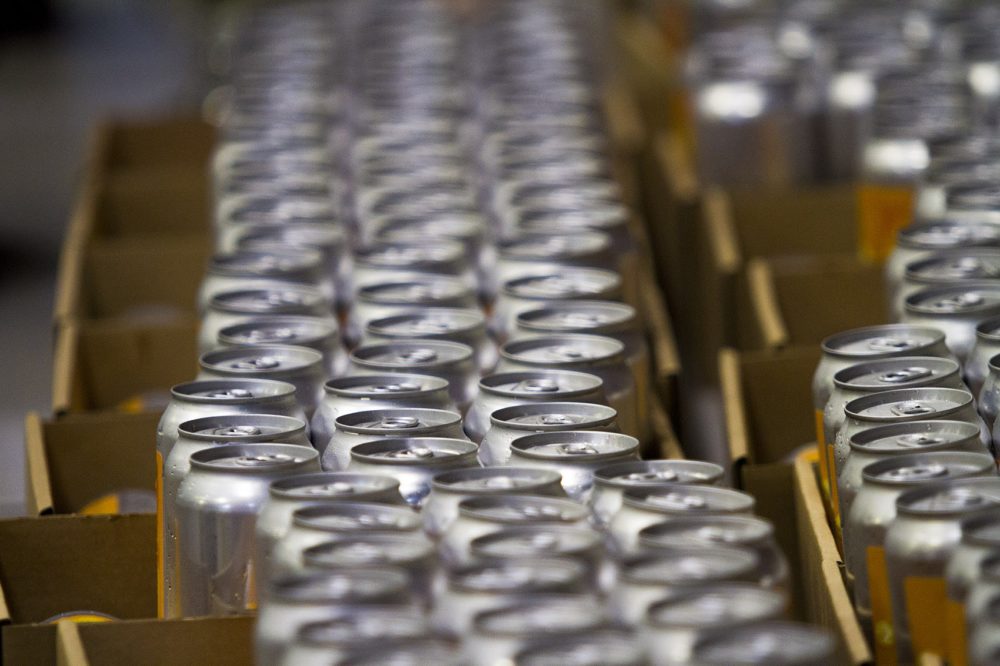Modernizing the bottle recycling program in Mass. would have big benefits, report finds

Cans of beer packed up at Tree House Brewing Co. in 2017. (Jesse Costa/WBUR)
Massachusetts could cut down on plastic litter, create less garbage, reduce greenhouse gas emissions and save cities and towns millions of dollars every year by modernizing the way it recycles beverage containers, according to a new report by the nonprofit Reloop North America.
The report focuses on the so-called deposit return system (DRS) — the five cent deposit you pay when you buy a can of soda or beer, and then get back when you return it to a bottle redemption site.
We’ve known for decades that states with deposit return systems see higher bottle recycling rates, says Reloop director Elizabeth Balkan. “Likewise, when you look at states that do have a bottle bill and compare the containers that are covered by the program versus those that are not, the containers that are part of the program are recycled at a much higher rate.”
Deposit returns systems are not only an effective and cost-efficient way to incentivize recycling, but the bottles they collect are often pre-sorted by a machine and less likely to be contaminated, which means they’re more likely to actually be recycled.
But many of these programs, particularly in the Northeast, are old and outdated, Balkan says — Massachusetts hasn’t changed the deposit fee since it enacted the law in 1982, for instance.
So to show the benefits of modernizing the system, her group modeled what would happen in five Northeast states if they increased the bottle deposit to 10 cents, set up easily accessible bottle deposit sites around the state, and vastly expanded the types of containers that can be included in the program, among other things.
The results were pretty astounding. For example, the model predicted 14 billion fewer glass, plastic and aluminum beverage containers would be thrown away or on the ground every year in Massachusetts, Connecticut, Vermont, Maine and New York.
Modernizing the bottle bill “physically increases the amount of material — the volume — that can be recycled, and it ensures that what you’re getting back is higher quality,” Balkan says. “It also makes it less confusing for the average consumer.” (No more wondering what goes to the redemption center and what goes on the curb.)
Attempts to update Massachusetts’ bottle bill have failed in the past, but Balkan hopes this new report helps galvanize support for making a change.
Read other notable findings from the report at WBUR.org.
Click here for more NENC stories on trash and waste issues in New England.
